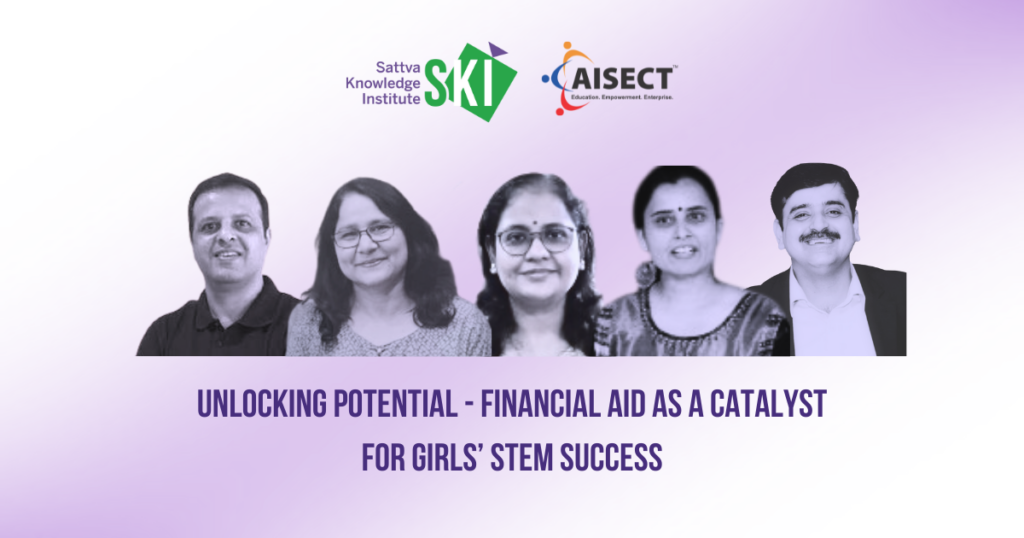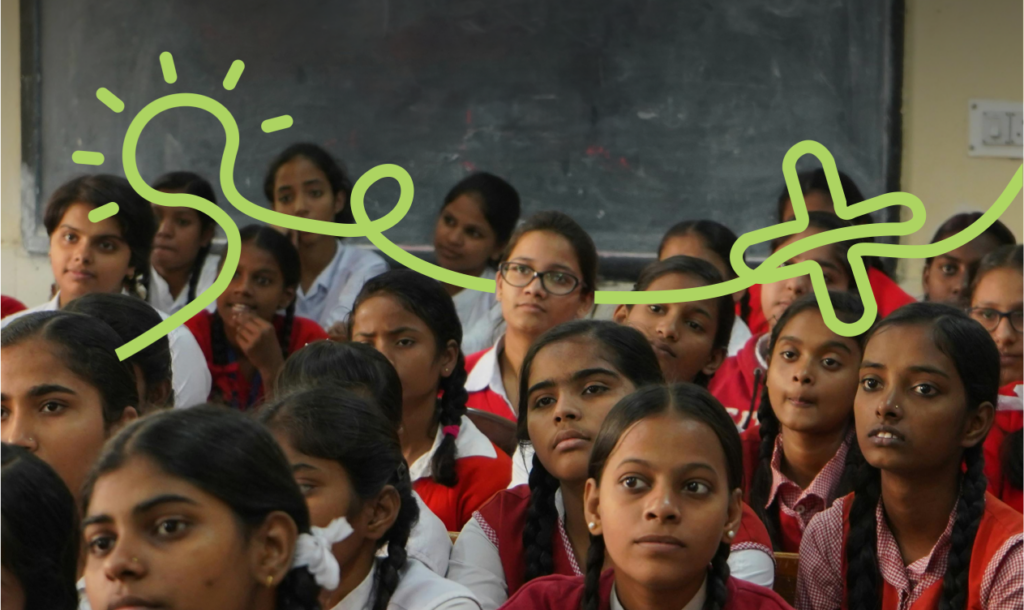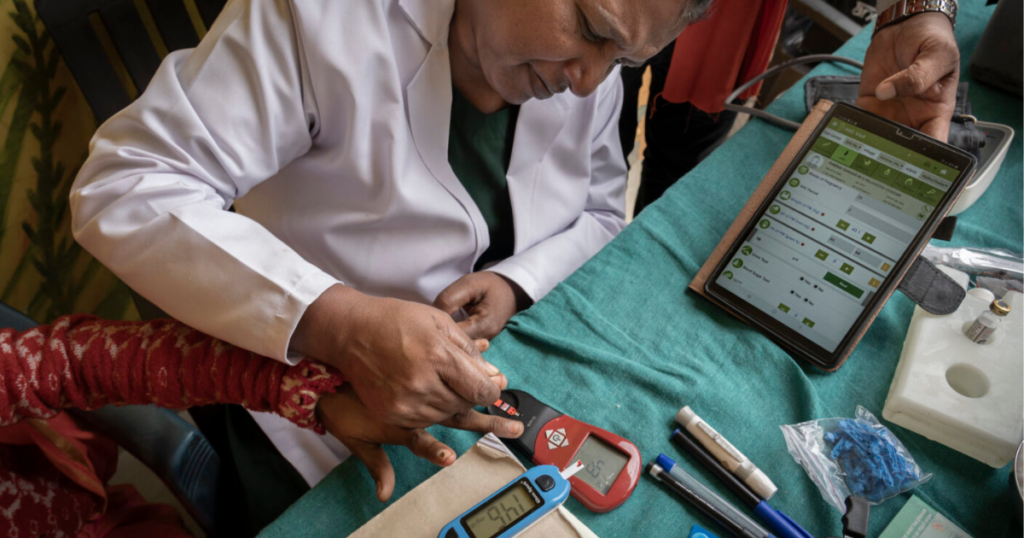Capacity building programmes are crucial in the engagement strategy of nonprofits working in the education sector. They become drivers of landmark policy goals, such as the National Education Policy (NEP) 2020, in India which is one of the world’s largest education systems. By involving local stakeholders, nonprofits equip state governments, district administrations, schools and teachers with institutional, organisational and human capacities.
Activities in capacity building programmes are of two types: direct and indirect activities. Direct activities include training, teaching and assessment, awareness generation and operational support. Provision of learning material, management and monitoring/evaluation activities are considered indirect activities. A dipstick study conducted by Sattva Knowledge Institute (SKI) involving 20 education programmes across 21 nonprofits showed that a majority (~80%) of the funds are allocated for capacity building programmes, out of which around 56% of these funds are spent on direct capacity building activities.
Several challenges for capacity building in education arise in a diverse country such as India despite the potential for impact and continued efforts. Large-scale capacity building programmes need to be tailored to account for nuances related to local context such as language, culture, local leadership and stakeholders. Thus, standardisation and scaling of activities become imperative to overcome challenges such as limited human resource capacity, limited collaboration and coordination, and a multilingual user base making the current capacity building process inefficient and time-consuming.
Digital Public Goods (DPGs) enable nonprofits to build local, contextual and scalable solutions for capacity building by using non-contextual blocks. Digital Public Goods, like Kolibri, DRUPAL and Sunbird, have been used to optimise challenges related to education and skilling. In institutional strengthening and capacity building, the independent, interoperable and configurable elements of digital public goods encourage coordination and collaboration among participants through common learning platforms, discussion forums and knowledge repositories. For nonprofits, digital public goods provide a streamlined and efficient medium for skilling large populations by integrating other digital solutions such as Aadhaar and Digilocker. Verifiable credentialing becomes convenient, thereby increasing the employability of the underserved youth population.
Considering that digital public goods are at an early stage of development, a multi-stakeholder engagement with the ecosystem should support the generation of multiple use cases. Philanthropic organisations, technology players and nonprofits are the primary drivers of digital public goods in capacity building programmes. Philanthropy, through patient capital, should enable research and development of DPG-led use cases, innovations, and technology. Technology players should enable and support the development of context-specific solutions. Further, nonprofits should focus on utilising existing digital public goods to develop tech solutions, create product requirements for their interventions and solve necessary conditions to achieve social impact.
Contributors: Parul Gupta, Sohini Dutta, Abhishek Modi, Shreyanka Chandel, Arnab Mukherjee, Hitanshi
Gupta and Akshata Jain.
- Gaurav Gupta (EkStep Foundation)
- Ikpreet Singh (EkStep Foundation)
- Kameswara Bhiravabhatia (EkStep Foundation)
- Sree Harsha Karnam (EkStep Foundation)
- Laxman Joshi (LAHI)
- Sudha Upadhyayula (One Billion Literates)
- Ashok Kamath (Akshara Foundation)
- Khushboo Awasthi (Shikshalokam)
- Dr. Jigna Nawani, Ghanshyam Soni & Mukesh (Piramal Foundation)
- Jayakumar K. & Sandeep S. (SVYM)
- Raju Velayudhan & Rao V.V. (Labournet)
- Purvi Shah & Krithika Ramakrishnan (Pratham Books)
- Mangal Pandey (Key Education Foundation)
- Nitin Mathur (Quest Alliance)
- Parth Lawate (Tekdi Technologies)
- Ram Kolavennu (Foundation for Excellence)
- Ravishankar R.H., Sreekanth & Venkatesh Murthy (Youth for Seva)
- Sunayana Chatrapathy (Makkala Jagriti)
- Venkat Sriraman (eVidyaloka)
- Vibhor Goel (Anudip Foundation)




